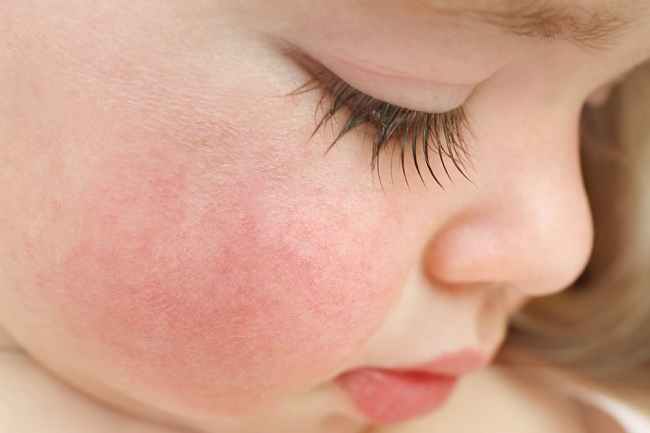Red cheeksAt first glance it will look very cute. However if it happened suddenly, maybeYour little one has red cheek syndrome or slapped cheek syndrome.
Red cheek syndrome belongs to the category "fifth disease". This condition is caused by infection with parvovirus B19, and is more common in children than adults.

Recognize Symptoms of Red Cheek Syndrome
Transmission of red cheek syndrome can occur through sneezing, coughing, and direct contact with objects contaminated by this virus.
Red cheek syndrome is usually preceded by symptoms such as fever, runny nose, fussiness, drowsiness, and eating disorders. Some children may experience joint, muscle, and sore throat pain.
About two to five days after the initial symptoms, the child's cheeks will begin to appear reddish. This rash on the cheeks will be followed by a rash on the child's body and limbs. The rash is usually itchy and often makes the child uncomfortable.
Mothers are advised to immediately check the health condition of the Little One to the doctor if he has a high fever that does not improve after more than 5 days and does not want to breastfeed or eat. Especially if your child has special health problems, such as thalassemia or sickle cell anemia.
Various Ways to Overcome Red Cheek Syndrome
Usually red cheek syndrome will go away on its own after 1-2 weeks. However, to reduce the discomfort your little one feels due to red cheek syndrome, you can do the following:
- Make sure your little one gets enough rest.
- Sufficient fluid needs of the Little One, so that he does not become dehydrated.
- If necessary, you can also give your little one fever-reducing medicine, such as: paracetamol.
Mothers also need to know how to prevent transmission of red cheek syndrome to children, namely teaching children to wash their hands frequently with soap and running water, cover their mouth and nose when sneezing or coughing, and limit direct contact with people with red cheek syndrome as much as possible.
If the red cheek syndrome experienced by your little one does not improve even though you have done the above methods, you should immediately consult a doctor to get the right treatment.









